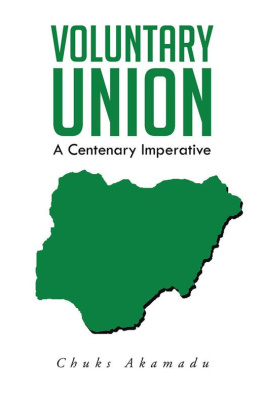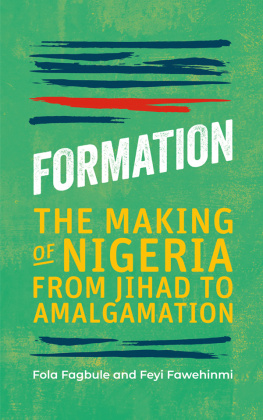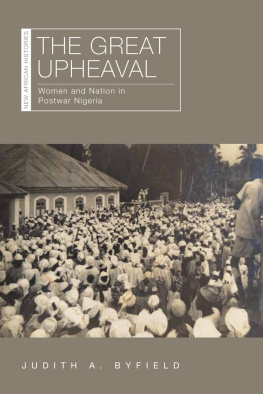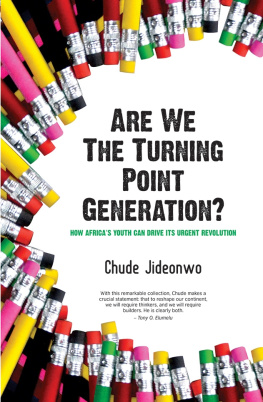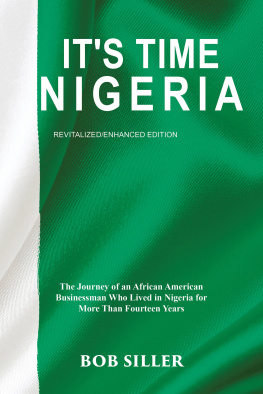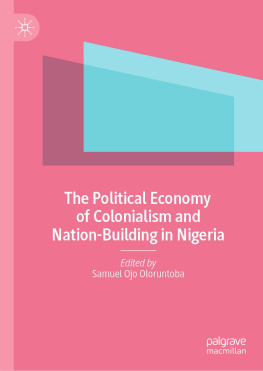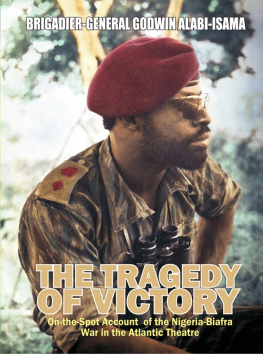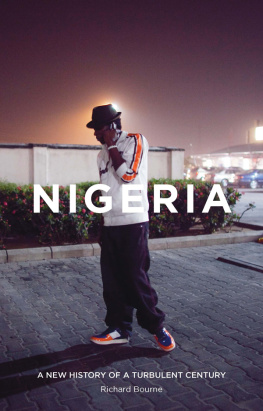VOLUNTARY
UNION
A Centenary Imperative
Chuks Akamadu

AuthorHouse LLC
1663 Liberty Drive
Bloomington, IN 47403
www.authorhouse.com
Phone: 1-800-839-8640
2014 Chuks Akamadu. All rights reserved.
No part of this book may be reproduced, stored in a retrieval system, or transmitted by any means without the written permission of the author.
Published by AuthorHouse 06/10/2014
ISBN: 978-1-4918-4361-1 (sc)
ISBN: 978-1-4918-4360-4 (hc)
ISBN: 978-1-4918-4359-8 (e)
Library of Congress Control Number: 2013923245
Any people depicted in stock imagery provided by Thinkstock are models,
and such images are being used for illustrative purposes only.
Certain stock imagery Thinkstock.
Because of the dynamic nature of the Internet, any web addresses or links contained in this book may have changed since publication and may no longer be valid. The views expressed in this work are solely those of the author and do not necessarily reflect the views of the publisher, and the publisher hereby disclaims any responsibility for them.
CONTENTS
DEDICATION
To Late Dr. Michael Iheonukara Okpara
(My Portrait of a Quintessential Patriot and Statesman)
Foremost, I would like to thank God Almighty for His Excellency, Dr. Goodluck Ebele Jonathan GCFR, who it pleased to appoint me as a member of Nigeria Centenary Celebrations Planning Committee the very platform that inspired, in large parts, the writing of this book.
Equally, I owe a debt of gratitude to the committees chairman, Senator Anyim Pius Anyim, Secretary to the Government of the Federation, and my colleagues on the committee, whose profuse optimism in Project Nigeria greatly encouraged this effort.
In no less measure, the input of Mr. Dodoiyi Deinbo William-West deserves appreciation. Mr. William-West was both my proofreader and editor. His many useful suggestions were quite enriching, even as he steadfastly urged me on when it appeared I was set to down tools .
Without a shred of doubt, my several intellectual engagements on the pages of The Guardian and Thisday, where I made frantic effort to put the essence of Nigerias Centenary in perspective, were an integral part of the conviction I needed to undertake the writing of this book. Many thanks to both media houses!
Equally, I would like to note in particular the co-operation and huge support of my personal staffers who ran unending errands and took all the blames, at every turn, and without any justification too, just to ensure that this ship berthed safely. Messrs Abimbola Oluwalowo, Chigozie Onyemiro and Malam Yusuf Ibrahim, God bless you richly.
Finally, God bless my lovely wife, Mrs. Mitchelle Chuks-Akamadu, for her patience, encouragement and dedication to this book project. She was, for all practical purposes, the most resourceful of all my research assistants. She did not only accept to be deprived of every wifes basic entitlementstime, attention and care, she facilitated it by generously offering herself as the firmest pillar of support that ensured the safety of this dream-come-true. God bless her for electing to bear the brunt.
On the occasion of the formal Amalgamation of the two Nigerians (Northern and Southern Protectorates), I wish to convey to the Emirs, Chiefs and inhabitants of the new Protectorates and the Colony (Nigeria) my best wishes for their future happiness. Pray assure them of the great interest I take in their welfare and express my earnest hope that great prosperity may be in store for them
With this message relayed through Sir Frederick Lugard, His Majesty, George R.I., the king of England, put his royal seal on the amalgamation of the Northern and Southern protectorates of Nigeria on January 1, 1914.
In the years that were to follow, late Chief Obafemi Awolowo, after due consideration of the inherent contradictions in the country referred to Nigeria as a mere geographical expression.
Time and time again, Nigerians have argued that there were sufficient bases to re-visit the Nigerian union that birthed in 1914. Some cite the humbling submissions of Nigerias all-time greatest leaders above whilst others have their position premised on the fact that the amalgamation itself was for the administrative convenience of our colonial rulers (as they then were). There are yet others who simply opine that our differences make us incompatible; hence, they consider opinions other than theirs as merely wishful.
On the other side of the divide are those who insist, on the contrary, that the fact it was administratively convenient for Great Britain to amalgamate the North and the South raises a presumption of compatibility, ab initio . To this school of thought, Project Nigeria is doable. For them, too, if Nigerias health is ailing, then it must be a reflection of the ailing health of individual Nigerianshaving nothing to do with tribe or faith!
One hundred years after amalgamation, Nigeria and her citizens have a sacred obligation to take stock. Has the hope of King George R.I. of England materialized? Were the assertions of Chief Awolowo and Alhaji Bello right? If the answer is in the affirmative, to what extent are they right? All other things considered, are they still valid today? Do Nigerias highly debatable present conditions make Dr. Azikiwes frantic advocacy necessary anymore?
In any event, what do the leaders and peoples of Nigeria feel, think and know at centenary? These are a few of the questions that this book seeks to either provide satisfactory answers to or with the combined aid of history and contemporary realities situate within the proper context for the ultimate emergence of right answers.
Further, in addition to very extensive interrogation of the National Question, this book unveils historical distortions in some discomforting details. At Nigerias centenary, the chain of stereotypes, biases, prejudices and deliberate falsehood must be broken for the country and her peoples to walk free or begin afresh, where necessary. The occasion of our centenary is also a most fitting time to tell home truths unabashedlyhowever inconvenient.
More than anything else, this work strives to present all sides of all issues it treats, leaving the reader to reach their own conclusions, with a view to ventilating the Great Nigeria House, which is thought to be a precondition for a dispassionate assessment of our 100 year-old journey to nationhood. The present danger, I must warn, is that the reader has a waiting misfortune of turning their backs on truths they had hitherto held on to as creed!
The author does not expect his position on some issues that have dogged Nigeria to go unchallenged. In fact, that these issues should be presented, robustly debated and analysed is one of the reasons for doing this book. However, such exercise, he hopes, will be done with a good head on the shoulderclearly thought out and with the openness that does not personalise issues. In fact, at centenary we should present all the questions that affect our union. This book has presented a number of them, with the intention of setting the right tone for a watershed centenary.
Reader, here is your new garment for both the centennial celebrations and post-centenary Nigeria.
Chuks Akamadu
Abuja
(October 1, 2013)
CHAPTER ONE
How We Got Drenched
I believe we can have our own Marshall Plan, an effective and dedicated effort that can yield concrete and laudable result for the benefits of the people, not institutions overwhelmed by rhetoric and buried in the inefficiency of bureaucracy; not an institution that is a substitute for outright corruption and deluge of financial misappropriations and misuse. Not a situation that the system over-heats and crisis explodes, the privileged and rich ones will fly to safety in quiet havens in distant countries.
Next page
